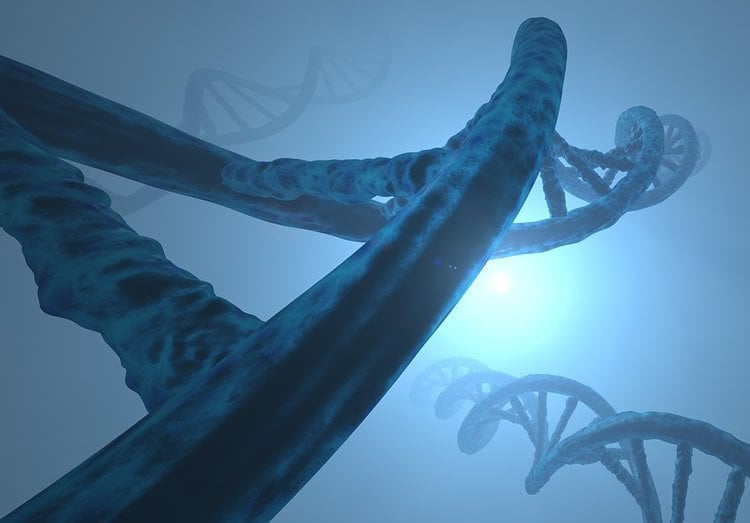Summary: Researchers depression and anxiety alters energy metabolism in the brain.
Source: Akson Russian Science Communication Association.
Russian neuroscientists discovered that anxiety-depressive disorder in mice is associated with impaired energy metabolism in the brain. The obtained data provides a fresh look at the depression development mechanism and other psycho-emotional diseases formation. The results of the study supported by Russian Science Foundation are published in the BMC Neuroscience.
The World Health Organization claims that 5 out of 10 major causes of disability in most countries of the world are related to mental and behavioral disorders. Up to 95% of people with depression have a diagnosis of anxiety disorder. As recent research shows. such conditions might be associated with mitochondria defects. These “energy stations” of cells are responsible for the formation of ATP molecules, which are necessary for most reactions in living organisms. Defects of mitochondria appear due to congenital mutations or adverse external conditions, violating the work of mitochondrial genes with no mutations. As a result, the amount of proteins encoded by these genes changes.
Neurobiologists from the Institute of Cytology and Genetics of the Siberian Branch of the Russian Academy of Sciences conducted an experiment on depression modeled in mice to find out whether some mitochondria defects in different brain parts accompany psycho-emotional disorders in animals. In total, the study compared the work of 47 genes encoding numerous carrier proteins located on the inner membrane of the mitochondria.

“The results of this study confirm the findings of our previous works. It means that psycho-emotional disorders due to constant social conflicts cause severe mitochondrial dysfunction in the brain. The consequences of these disorders can be observed in many neurological and psychoemotional diseases, including depression, bipolar disorder and schizophrenia. A detailed study of the mechanisms of development of mitochondrial dysfunction may provide the key to new methods of treating these diseases,” says Natalia Kudryavtseva, senior researcher at the Institute of Cytology and Genetics of the SB RAS.
Scientists conducted experiments on mice placed in terms of social conflict, triggering depression and anxiety. They compared how selected genes worked in this mice group with some control mice, who did not experience such a stress. It turned out that expression of most genes in the hypothalamus, the part of the brain that regulates stress reactions, has changed. Gene expression has also changed in the hippocampus, which plays a crucial role in memory formation, emotional reactions and new neurons formation. These data show that in chronic social conflicts that lead to the development of anxiety-depressive disorder in animals, the work of mitochondria is disrupted in several parts of the brain.
Funding: The work was supported by Russian Science Foundation.
Source: Natalia Kudryavtseva – Akson Russian Science Communication Association
Publisher: Organized by NeuroscienceNews.com.
Image Source: NeuroscienceNews.com image is in the public domain.
Original Research: Open access research for “Altered Slc25 family gene expression as markers of mitochondrial dysfunction in brain regions under experimental mixed anxiety/depression-like disorder” by Vladimir N. Babenko, Dmitry A. Smagin, Anna G. Galyamina, Irina L. Kovalenko and Natalia N. Kudryavtseva in BMC Neuroscience. Published December 11 2018.
doi:10.1186/s12868-018-0480-6
[cbtabs][cbtab title=”MLA”]Akson Russian Science Communication Association”Anxiety and Depressive Disorders Alter Brain Gene Activity.” NeuroscienceNews. NeuroscienceNews, 7 January 2019.
<https://neurosciencenews.com/depression-anxiety-brain-gene-10441/>.[/cbtab][cbtab title=”APA”]Akson Russian Science Communication Association(2019, January 7). Anxiety and Depressive Disorders Alter Brain Gene Activity. NeuroscienceNews. Retrieved January 7, 2019 from https://neurosciencenews.com/depression-anxiety-brain-gene-10441/[/cbtab][cbtab title=”Chicago”]Akson Russian Science Communication Association”Anxiety and Depressive Disorders Alter Brain Gene Activity.” https://neurosciencenews.com/depression-anxiety-brain-gene-10441/ (accessed January 7, 2019).[/cbtab][/cbtabs]
Abstract
Altered Slc25 family gene expression as markers of mitochondrial dysfunction in brain regions under experimental mixed anxiety/depression-like disorder
Background
Development of anxiety- and depression-like states under chronic social defeat stress in mice has been shown by many experimental studies. In this article, the differentially expressed Slc25* family genes encoding mitochondrial carrier proteins were analyzed in the brain of depressive (defeated) mice versus aggressive mice winning in everyday social confrontations. The collected samples of brain regions were sequenced at JSC Genoanalytica (http://genoanalytica.ru/, Moscow, Russia).
Results
Changes in the expression of the 20 Slc25* genes in the male mice were brain region- and social experience (positive or negative)-specific. In particular, most Slc25* genes were up-regulated in the hypothalamus of defeated and aggressive mice and in the hippocampus of defeated mice. In the striatum of defeated mice and in the ventral tegmental area of aggressive mice expression of mitochondrial transporter genes changed specifically. Significant correlations between expression of most Slc25* genes and mitochondrial Mrps and Mrpl genes were found in the brain regions.
Conclusion
Altered expression of the Slc25* genes may serve as a marker of mitochondrial dysfunction in brain, which accompanies the development of many neurological and psychoemotional disorders.






